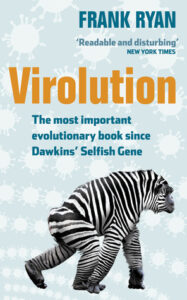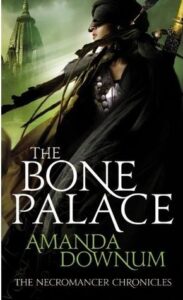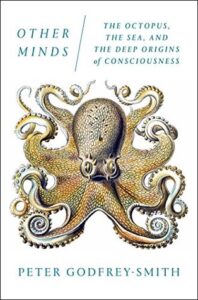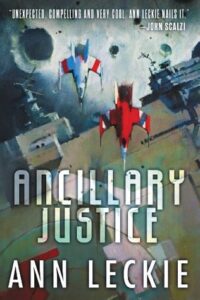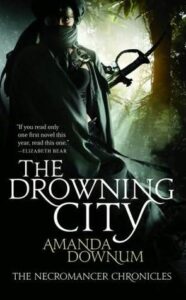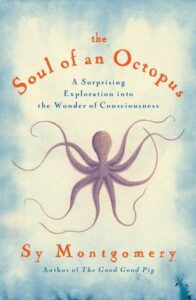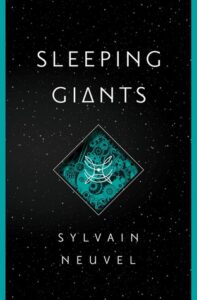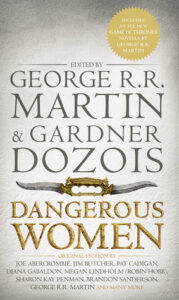 Dangerous Women: Part I, ed. George R.R. Martin & Gardner Dozois
Dangerous Women: Part I, ed. George R.R. Martin & Gardner Dozois
I expected this to have more fantasy stories in it, given Martin’s involvement, the cover, everything I’d heard about it. But nope, four of the seven stories in this volume aren’t fantasy — even one I thought would be, since I know the author’s fantasy work.
‘The Princess and the Queen’, by George R.R. Martin — Reads like a summary of a story he couldn’t be bothered to write, heavily cribbed from English civil wars. I ended up skipping it, since I’m not actually a Martin fan and haven’t read A Song of Ice and Fire yet.
‘Raisa Stepanova’, by Carrie Vaughn — I kept expecting the SF/F here, but nope; this is a historical story set in World War II. I didn’t really get into it, perhaps because it wasn’t what I was expecting.
‘Second Arabesque, Very Slowly’, by Nancy Kress — Your fairly typical women-are-breeders spec-fic future, with some kids getting all hooked on ballet, enough to kill so they can run off and do it for fun. Didn’t really work for me, because every beat was predictable, and even if I sympathised with their need to get away, I didn’t enjoy the characters’ methods.
‘I Know How To Pick ‘Em’, by Lawrence Block — Gritty noirish short story, sex and murder, exactly what you expect going in.
‘My Heart is Either Broken’, by Megan Abbott — I wasn’t sure where this was going, and I’m not sure it quite got there, but it got hold of me. I wanted things to come out okay; I feared that things would never be the same for the characters if they did.
‘Wrestling Jesus’, by Joe R. Lansdale — Another fairly predictable one. Not my genre, either. The dangerous woman of the anthology’s theme is, in this case, a nasty woman who likes playing around with people; yay… I’d kinda like to see more dangerous women who aren’t morally dubious. Speaking of which…
‘Shadows for Silence in the Forests of Hell’, by Brandon Sanderson — Probably my favourite of the bunch, though I guess that isn’t saying much considering my feelings on some of the above. This is actually fantasy, the world is fascinating, and you get sucked in by the character’s problems and what they need to do to survive.

